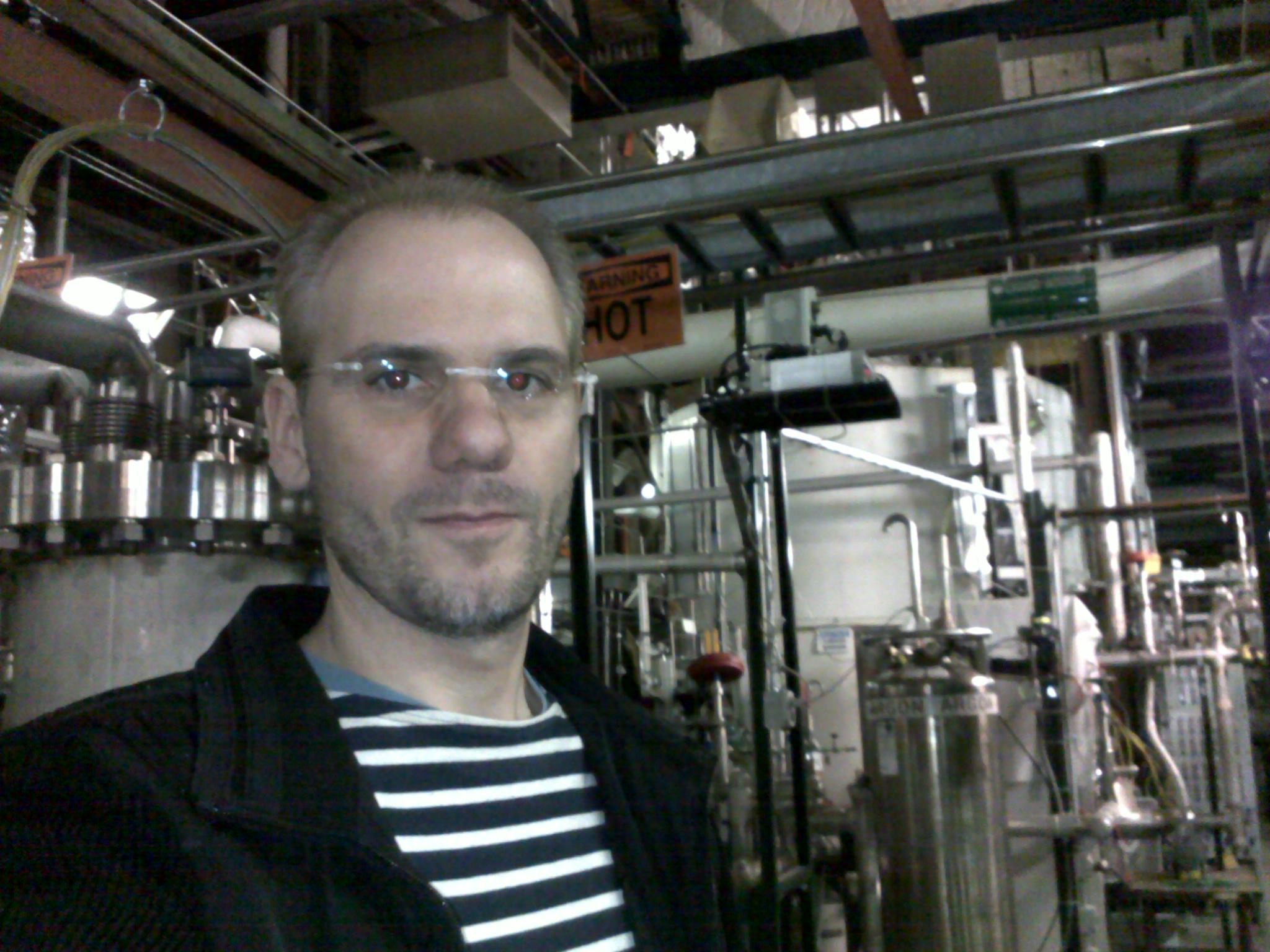Associate Professor
Physics (PHYS)Education
M.S., Karlsruhe Institute of TechnologyPh.D., Karlsruhe Institute of Technology
Contact/Location
Juergen.Reichenbacher@sdsmt.eduDAK 102 (campus map)
Research Expertise
My research interests are Neutrino Physics & Dark Matter as intersection of Nuclear, Astro & Particle Physics. I focus on radiological backgrounds, calibration systems, development of detectors, nuclear forensics, simulation, computing/HPC, statistical analyses, machine learning, automation design and cosmic rays.
As undergrad in Germany my interest got sparked by giving a presentation on solar neutrinos that were discovered here in a gold mine in the Black Hills. I then joined the neutrino group at the Institute of Experimental Nuclear Physics at KIT, where I did my Diploma- and Ph.D. theses on the KARMEN short-baseline neutrino experiment which was located at the Rutherford-Appleton-Laboratory in Oxford/UK. As postdoc I worked on the MINOS long-baseline neutrino experiment (Fermilab/Chicago & MN) and on the Double Chooz reactor neutrino experiment in France, before focusing as South Dakota Mines faculty on the DUNE neutrino experiment & on the LZ dark matter experiment, both located at nearby Sanford Lab, the former gold mine.
Brief Bio
Education and Professional Preparation:
- Karlsruhe Institute of Technology (KIT): Diploma-Physicist (>M.Sc.) 1998
- Karlsruhe Institute of Technology (KIT):
Ph.D. 2004
- Argonne National Laboratory, Argonne/IL (University of Chicago):
Postdoctoral
Appointee at High Energy Physics Division (2005-2008)
- The University of Alabama, Tuscaloosa:
Postdoctoral Appointee at Dept. of Physics & Astronomy
(2009-2011)
Appointments:
- South Dakota School of Mines & Technology: Associate-Professor (tenured 2020
- present)
- South Dakota School of Mines & Technology: Assistant-Professor (tenure-track
2014-2020)
- The University of Alabama, Tuscaloosa: Research Scientist (2011-2014)
Teaching
Physics Courses taught/developed:
PHYS-211 University Physics I Mechanics (3 credits)
PHYS-211 Honors Course University Physics I Mechanics (4 credits, newly developed)
PHYS-213 University Physics II Electricity & Magnetism (3 credits)
PHYS-312/314
Experimental Physics Design I/II (2 credits)
PHYS-350 Advanced Physics Lab Course (3 credits, newly developed)
PHYS-412/414 Advanced Design Projects I/II (3 credits)
PHYS-433/533 Nuclear and Elementary Particle Physics (3 credits)
PHYS-491/791
IND: Germanium Detectors (2 credits)
PHYS-733 Experimental Methods in Nuclear and Particle Physics (3 credits)
PHYS-790 Physics Seminar (1 credit)
PHYS-898 Dissertation (flexible credits)
